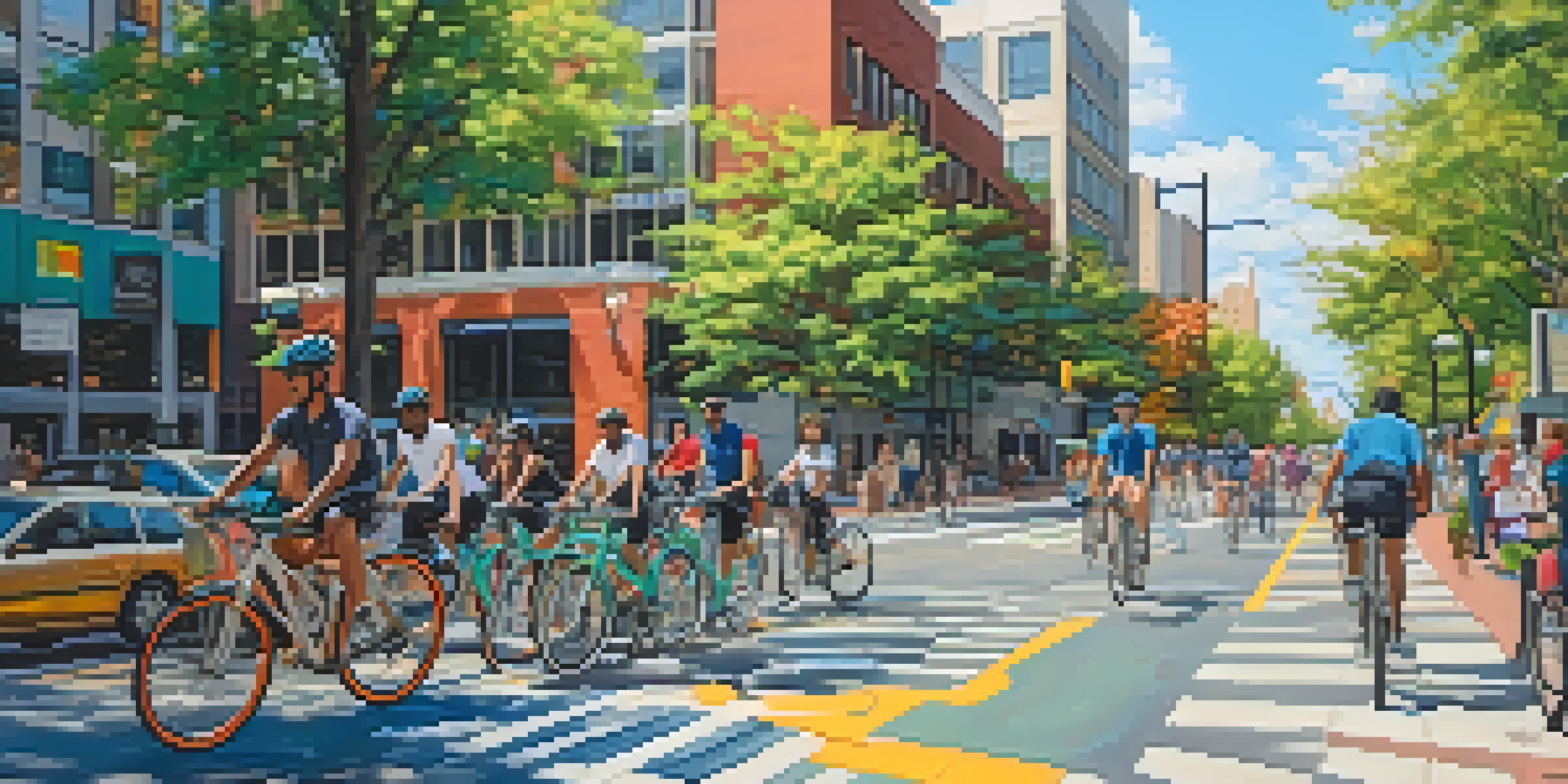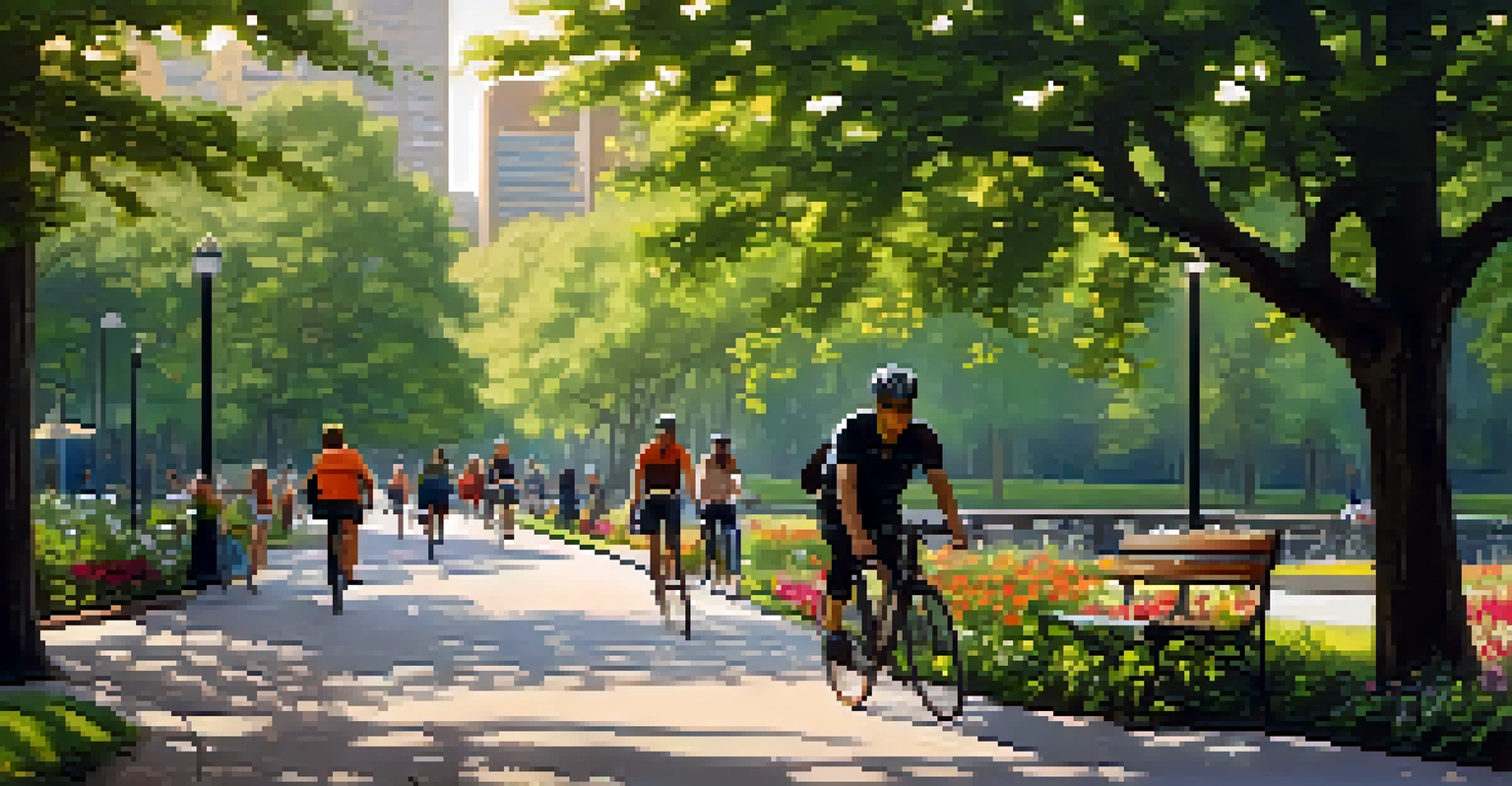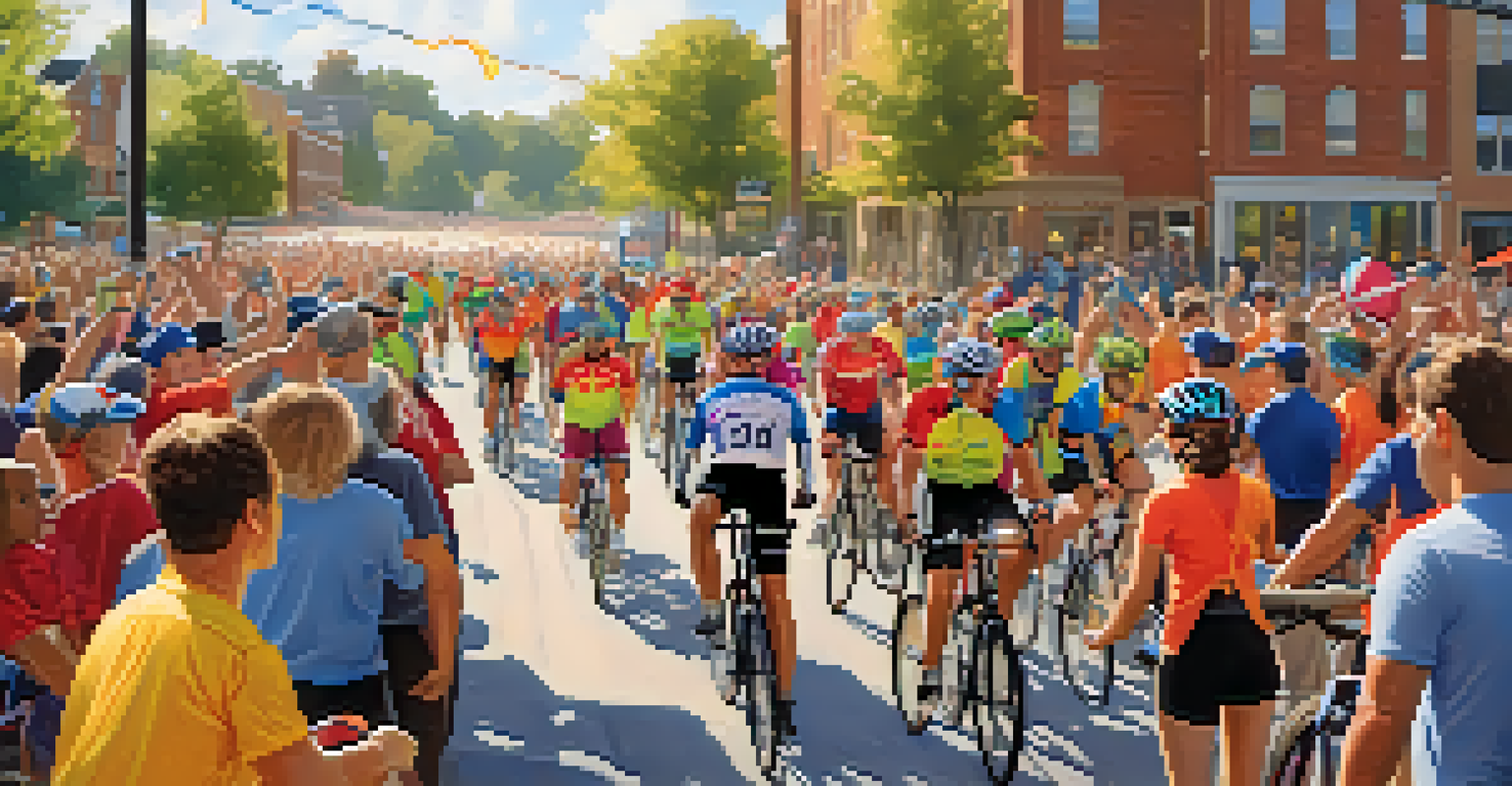The Role of Bicycles in Raleigh's Transportation Network

Understanding Raleigh's Transportation Landscape
Raleigh's transportation network has evolved significantly over the years, accommodating a growing population and diverse commuting needs. With the rise in urbanization, the city is focusing on sustainable transport solutions. Bicycles have emerged as a crucial component in this transformation, offering an eco-friendly alternative to traditional vehicles.
Bicycles are the most democratic form of transport; they provide the freedom of movement to everyone, regardless of income or social status.
The integration of bicycles within Raleigh's transportation system is not just about mobility; it's about creating a connected community. As more people turn to biking, the city recognizes the need to support this shift through infrastructure improvements. This includes dedicated bike lanes, bike-sharing programs, and safe parking facilities.
By understanding the current landscape, we can appreciate the role of bicycles as both a practical mode of transport and a means of fostering a vibrant community. As we delve deeper, we'll explore the various initiatives and benefits that come with enhancing bicycle accessibility in Raleigh.
The Benefits of Bicycles for Urban Mobility
Bicycles provide numerous benefits for urban mobility, particularly in a bustling city like Raleigh. They offer a flexible and efficient way to navigate through traffic, especially during peak hours when cars are often gridlocked. Plus, biking can reduce travel times for short-distance trips, making it an attractive option for commuters.

In addition to convenience, bicycles contribute to decreased congestion on the roads. When more people choose to bike instead of drive, it leads to fewer cars on the streets, which can ease traffic flow. This shift not only enhances individual travel experiences but also benefits the overall transportation network.
Bicycles Boost Urban Mobility
Bicycles offer a flexible and eco-friendly commuting option, reducing traffic congestion and travel times in Raleigh.
Furthermore, promoting bicycle use aligns with environmental goals. Biking produces zero emissions, making it a sustainable choice that helps reduce the city's carbon footprint. As Raleigh continues to prioritize green initiatives, the bicycle's role in urban mobility becomes increasingly vital.
Infrastructure Development for Cyclists
For bicycles to thrive in Raleigh's transportation network, robust infrastructure is essential. This includes well-designed bike lanes, safe crossings, and ample bike parking. The city has made strides in recent years, investing in dedicated cycling paths that encourage safe riding and enhance the overall biking experience.
Cycling is a simple solution to some of the world’s most complex problems, including climate change, air pollution, and congestion.
Additionally, the establishment of bike-sharing programs has made cycling more accessible to residents and visitors alike. These initiatives provide an easy way for people to hop on a bike without the commitment of ownership, promoting cycling as a convenient option for short trips. Whether for commuting or leisure, these programs are pivotal in fostering a biking culture.
Moreover, community engagement plays a crucial role in infrastructure development. By involving cyclists in the planning process, Raleigh can ensure that the needs of all users are met. This collaborative approach helps create a more inclusive and effective transportation network.
Health Benefits of Cycling in Raleigh
Cycling is not just an efficient mode of transport; it also offers significant health benefits. Regular biking can improve cardiovascular fitness, strengthen muscles, and boost mental well-being. For Raleigh residents, integrating cycling into their daily routines can lead to a healthier lifestyle, reducing the risk of chronic diseases.
Furthermore, biking encourages outdoor activity, which can enhance both physical and mental health. The vibrant parks and greenways in Raleigh provide scenic routes for cyclists, making the experience enjoyable and rejuvenating. This connection to nature can also reduce stress and promote a sense of community among riders.
Cycling Enhances Community Health
Regular cycling improves physical fitness and mental well-being, encouraging a healthier lifestyle among Raleigh residents.
As more people recognize these health benefits, the appeal of cycling grows. By promoting biking initiatives, Raleigh not only enhances transportation options but also invests in the well-being of its residents.
Bicycles and Economic Growth in Raleigh
Bicycles play a surprising role in driving economic growth in Raleigh. Increased bike ridership can lead to higher foot traffic in local businesses, as cyclists are more likely to stop and shop compared to those driving by. This boost in local commerce can be significant, especially in vibrant neighborhoods and downtown areas.
Moreover, investing in biking infrastructure can attract new businesses and residents to the area. Cities known for their bike-friendly amenities often appeal to young professionals and families seeking a high quality of life. This influx can lead to job creation and increased property values, further benefiting the local economy.
Additionally, biking can reduce transportation costs for individuals, allowing them to allocate more of their budget to local goods and services. This economic ripple effect showcases the importance of bicycles in not just transportation, but also in fostering a thriving community.
The Social Impact of Bicycles in Raleigh
Bicycles have a unique way of bringing people together, fostering social connections within the community. Cycling events, group rides, and awareness campaigns create opportunities for residents to engage with one another. This sense of camaraderie can strengthen community bonds and promote a collective identity among cyclists.
Moreover, bicycles can serve as a great equalizer in urban settings. They provide an affordable transportation option for individuals from various socioeconomic backgrounds, ensuring that everyone has the opportunity to navigate the city. This inclusivity can enhance social equity and improve overall quality of life.
Economic Growth Through Biking
Increased bike ridership can stimulate local businesses and attract new residents, contributing to Raleigh's economic development.
As Raleigh continues to promote biking, the social impact becomes increasingly evident. By encouraging more people to ride, the city nurtures a vibrant, interconnected community that celebrates diversity and fosters collaboration.
Challenges and Future of Bicycles in Raleigh
Despite the numerous benefits, Raleigh faces challenges in fully integrating bicycles into its transportation network. Issues such as safety concerns, insufficient infrastructure, and weather conditions can deter potential cyclists. Addressing these challenges is crucial for fostering a biking culture that is safe and appealing to all.
City planners and advocates are working diligently to overcome these obstacles. This includes enhancing road safety measures, expanding bike lane networks, and promoting awareness campaigns. By prioritizing these initiatives, Raleigh can create a more bicycle-friendly environment.

Looking ahead, the future of bicycles in Raleigh appears promising. With continued investment and community involvement, the city can position itself as a leader in sustainable transportation. As more residents embrace cycling, Raleigh will undoubtedly enjoy the many benefits that come with an integrated bicycle network.